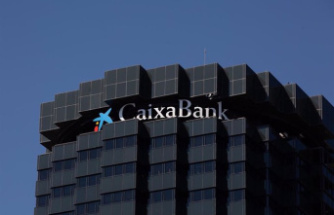A dramatic tone, and a battery of measures far from expected. Mario Draghi, the president of the european central Bank, which distils, in general, enough small phrases to avoid surprises during his lectures, has surprised the markets on Thursday.
The ECB has flatly rejected "at least the end of this year" of raising its interest rate. A surprising choice to observers who expected rather the status quo -on the evolution of rates, which on the horizon had previously been set to "summer 2019". "When you are in the black, you take small steps. You don't run, but you move," said Mario Draghi, during the press conference after the council of governors.
The economic situation of the euro area is considerably less shiny as the institute of Frankfurt still wanted to believe the end of 2018. The decisions of the ECB fit "in the context of the sharp downward revision of its outlook for real growth and inflation," says Eric Dor, director of economic studies of the IESEG. Even if it is a little less pessimistic than the OECD, the ECB has clouded his prognosis for the euro area. She expects more than 1.1% growth in 2019 and 1.6% in 2020, while it predicted 1.7% for each of the years in December.
"By pushing back rate rise to the Greek calends, the ECB force without a doubt just a little to show that she has now understood the situation"
inflation, Mario Draghi is convinced that "we will reach, with the time", the official objective of a price increase close to 2 %. Not in the short term in any case. The inflation will not exceed 1.2 per cent in 2019 and 1.5 % and then 1.6% in the following two years, now provides for the central Bank, which was previously on a slope leading to 1.8% in 2021.
The ECB, which has stopped at the end of December its program of net redemptions massive public and private debt (the policy known as "QE", quantitative easing), on Thursday announced a new wave of loans giants and cheap, to banks. It thus intends to "preserve favourable credit conditions" and a "proper transmission of monetary policy" for the economy. This aid plan, deployed between September and march 2021, or earlier than expected, facilitates the redistribution of liquidity in the form of credit to companies and households. In 2016 and 2017, the banks, in particular the Italian facilities are the most fragile, were precipitated on the program, dubbed TLTRO.
Another measure announced yesterday, in order to maintain favourable financing conditions, the ECB will continue to reinvest its stock of obligations maturing "well beyond" the date on which it has started to raise interest rates. "This goes much further than most of us imagined," said Paul Diggle, an economist at Aberdeen Standard Investments.
Risk multiples"however, there is a contradiction between the tone adopted by Mario Draghi, much more worried than expected on the economy, and his speech peppered with positive messages," notes his side Eric Bourguignon, managing director of Swiss Life Asset Management. The boss on the start of the ECB - its mandate ends on 31 October - emphasized that the probability of a recession was "weak" and that the economy of the euro area", was not lacking in pep.
Mario Draghi brushed Thursday, the table of the "many risks" weighing on the economy. These dangers go of tensions and protectionist to geopolitical uncertainties, from the turmoil in emerging markets. The "slowdown in external demand", as well as the "factors" that are specific to certain sectors or countries, such as the difficulties of the German automotive industry, "suggest outlook weaker than expected in the medium term," he said.
In parallel, the boss of the ECB has insisted, as he had done in the previous meetings, on the economic support linked "to the favourable conditions of financing, the drop in unemployment and higher wages, as well as "the current expansion in global activity, even slowed down".
"By pushing back rate rise to the Greek calends, the ECB force without a doubt just a little to show that she has now understood the situation, this is also a way of acknowledging that it erred in December by over-optimism" sums up Éric Bourguignon. The impact is in any case net on the euro, which has plunged to its lowest level against the dollar in four months.
Date Of Update: 09 March 2019, 00:00












